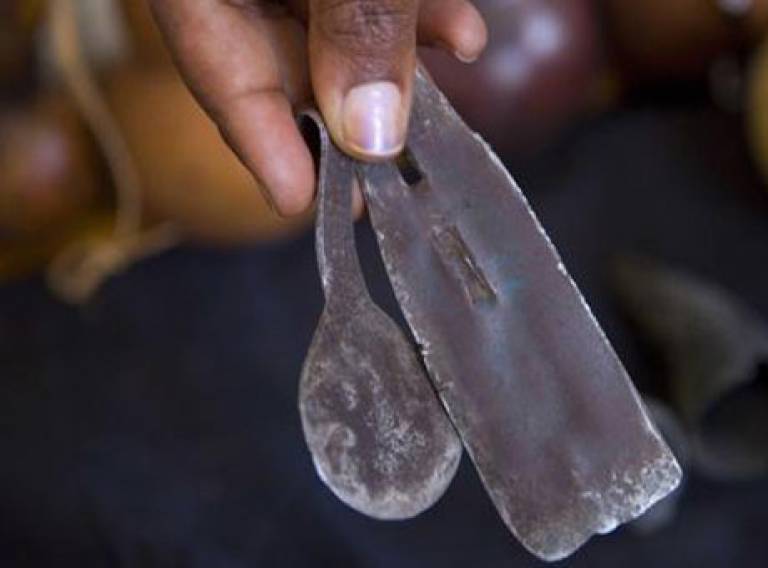Graduate Law Society contributes to Home Affairs Committee FGM report
10 July 2014

A pro bono project led by the Graduate Law Society at UCL Laws has contributed to the findings of the Home Affairs Committee report: Female genital mutilation: the case for a national action plan, published last week. The report calls for immediate action to be taken on behalf of the thousands of women and girls affected by female genital mutilation (FGM) in the UK each year, and recommends specific steps to respond to a growing crisis.
Following the initiation of the inquiry into FGM by the Home Affairs Committee last December, the Graduate Law Society submitted written evidence to the Committee as part of an ongoing project to give LLM students the opportunity to propose, research and prepare submissions to parliamentary committees. By taking advantage of the diversity of the student body at UCL Laws, the project is able to contribute a unique perspective to UK law reform debates by offering a comparative point of view of legal practice and policy across different countries.
The FGM inquiry sought to address the perceived deficiencies in the current protection mechanisms for women and girls at risk of FGM in the UK, and highlighted that since the practice was made illegal in 1985, there have been no successful prosecutions for FGM. In its response, the Graduate Law Society submission identified France as a country that has had more success in prosecuting FGM-related crimes, and, in reliance on research based on French-language resources, recognised that this has been achieved largely through mandatory medical checks on babies and children up to the age of six. It cautioned against employing such an approach in the UK however, specifying concerns over the intrusiveness of the mandatory checks, and the potential distrust it could generate of medical practitioners in affected communities.
The Home Affairs Committee report similarly made the comparison to French law and practice, citing the Graduate Law Society submission on a number of occasions. While the report ultimately considered the French approach to be a good example, particularly following the historic passivity of the police and Crown Prosecution Service in responding to the issue of FGM, it identified that the introduction of a universal system of regular examinations of children would constitute a ‘disproportionate response’ in the UK.
Commenting on the publication of the report, Graduate Law Society Pro Bono Officer, Andrew White, said: “It is pleasing to see that the ultimate recommendations of the Committee broadly reflect our (and others’) submission that the adoption of the French practice of mandatory medical examinations would not be proportionate, and that education should be promoted.
“It is very exciting to have been cited multiple times in the Committee’s report, and goes to show the value we can offer with a project like this given the diversity of the LLM cohort.”
The Graduate Law Society Pro Bono Project was established in 2014 to give UCL Laws postgraduate students the opportunity to propose, research and prepare submissions to parliamentary committees in respect of human rights and public interest law. It welcomes proposals from charitable organisations and NGOs for commissioned research into any area of public interest law.
The project is currently led by Graduate Law Society Pro Bono Officer, Andrew White, and its Faculty Advisor is Colm O’Cinneide.
 Close
Close

